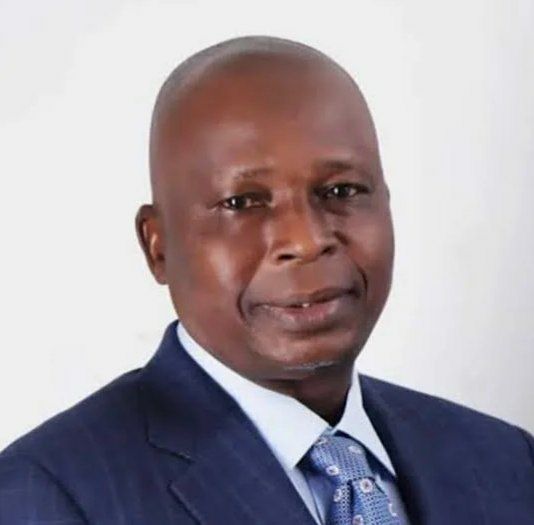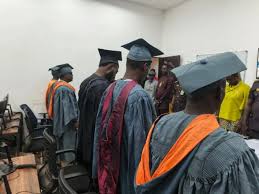
Autonomy: FG, govs, LG chairs sign implementation agreement
The Federal Government's Committee on Local Government Autonomy has wrapped up its meetings and signed the technical document, which will soon be sent to President Bola Tinubu.
In a conversation with our correspondent on Tuesday, Hakeem Ambali, the National President of the National Union of Local Government Employees, explained this.
The Attorney-General of the Federation and Minister of Justice, Lateef Fagbemi, filed a lawsuit on behalf of the Federal Government in May to contest the governors' power to accept and reject federal funding intended for Local Government Areas.
The lawsuit aimed to stop state governors from forming caretaker committees and arbitrarily dissolving democratically elected local government councils.
According to the AGF, the constitution forbade other forms of government and required a system of locally elected representatives.
In a historic ruling on July 11, 2024, the Supreme Court upheld the financial independence of the nation's 774 LGs, stating that governors could no longer manage funds intended for the councils.
The seven-member Supreme Court bench, presided over by Justice Garba Lawal, declared that governors' management and withholding of LG revenue was unlawful and unconstitutional.
Additionally, the top court ruled that the 36 states' failure to remit payments was illegal and ordered the Accountant-General of the Federation to pay LG allocations straight to their accounts.
Additionally, the Federal Government established a 10-member interministerial committee on August 20 to carry out the Supreme Court’s ruling on local government autonomy.
The committee members include the Minister of Finance & Coordinating Minister of the Economy, Wale Edun; Attorney-General of the Federation & Minister of Justice, Lateef Fagbemi SAN; Minister of Budget & Economic Planning, Abubakar Bagudu; Accountant-General of the Federation; Oluwatoyin Madein and the Governor of the Central Bank of Nigeria, Olayemi Cardoso.
Others are the Permanent Secretary, Federal Ministry of Finance, Mrs Lydia Jafiya, the Chairman, Revenue Mobilisation Allocation & Fiscal Commission, Mohammed Shehu, and representatives of state governors and the local governments.
The committee’s primary goal is to ensure that local governments are granted full autonomy, allowing them to function effectively without interference from state governments.
"The committee has held its final meeting and we have signed the technical document which will be transmitted to Mr. President so by November end," Ambali told our correspondent on Tuesday. States are anticipated to obtain their allotments from FAAC. I can also assure you that the President is looking forward to that document. The committee completed its job within the allotted time.
The National Union of Teachers, meanwhile, has voiced concerns regarding LGs' ability to pay primary school teachers the new minimum wage of N70,000.
The NUT's concerns are based on the councils' inability to enforce the previous N30,000 minimum wage.
Our correspondent's findings indicate that certain LG employees in Nasarawa, Enugu, Zamfara, and Borno Yobe, and Kogi states, among others, have remained on the N18,000 minimum wage, which was approved in 2011.
However, the inability of the councils to implement the minimum wage has been blamed on the failure of the government to fully implement the LG autonomy.
Data obtained from the NUT revealed that teachers in LG primary schools were not paid the former minimum wage.
In Enugu State, for instance, LG workers were exempted from benefitting from the minimum wage though the state workers enjoyed the minimum wage salaries.
Also, Abia, Adamawa, Bauchi, Nasarawa, Kogi, Sokoto, Taraba, Yobe, Zamfara, Imo and Gombe States did not implement the old minimum wage for teachers at both state and local levels.
Confirming this, the General Secretary of the National Union of Teachers, Dr. Mike Ene said, “I can tell you that some states didn’t even implement the N18,000 minimum wage for teachers at the local level. Some governors refused to pay stating that the teachers are under the employment of the local governments.
"When it comes to implementing the minimum wage, there should be no segregation of any kind. Each of us visits the same market. For employees of the local government, there is no particular market. Nonetheless, we applaud any governor who has publicly said that the minimum wage will be applied uniformly.
"I can tell you that the NLC's action will force things into play because they have also promised to shake the nation by December if state governments fail to implement the minimum wage."
However, NULGE president Ambali promised that when LG autonomy starts, the minimum wage will be applied uniformly.
Governors have had one justification over the years, and that is the reality that they always claimed that LGs are autonomous so they can’t negotiate minimum wage on behalf of LG workers. But the truth is that LGs were never autonomous during those periods.
“However, during the negotiation of the new minimum wage, the President brought in representatives of ALGON (Association of Local Government of Nigeria) to also negotiate and with the LG autonomy coming into play, that will be settled. The NLC has also given an ultimatum of December for all states as regards the payment of the minimum wage,” he added.





